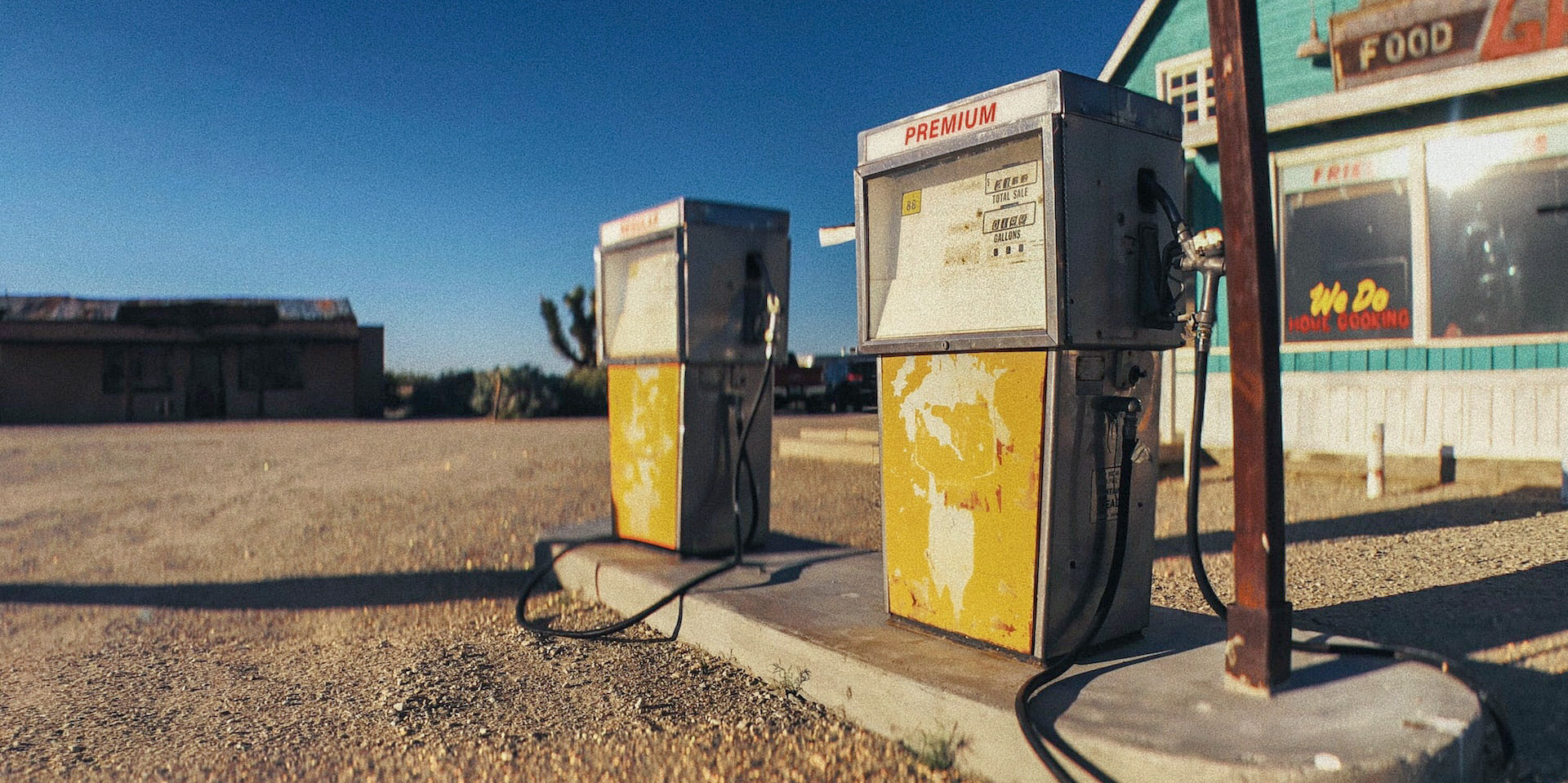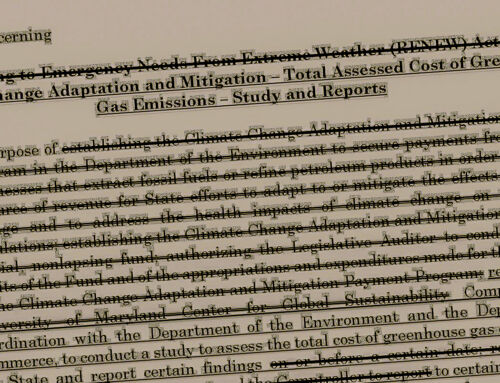View by Topic
Recent Articles
-
Congress Blocks California’s Gasoline Car BanSaturday, May 31st, 2025
-
EPA Will Keep Current Limits for “Forever Chemicals” in Drinking WaterSaturday, May 24th, 2025
-
Court Indefinitely Pauses SEC Climate Rule LitigationSaturday, May 17th, 2025
-
Maryland is About to Regulate Mold But is the Cart Before the HorseSaturday, May 10th, 2025
View by Month/Year
“Green Building Law Update” Headlines
Recent Articles & News from
Stuart Kaplow’s blog
at GreenBuildingLawUpdate.com
- EPA Will Keep Current Limits for “Forever Chemicals” in Drinking Water May 25, 2025
- Court Indefinitely Pauses SEC Climate Rule Litigation May 18, 2025
- Maryland is About to Regulate Mold: But is the Cart Before the Horse? May 11, 2025
- BEPS Redux: The Most Far Reaching Environmental Legislation of the 2025 Maryland General Assembly May 4, 2025
Subscribe to the Green Building Law Update!
Stuart Kaplow brings his expertise and extensive experience to the table with his unique digital publication, "Green Building Law Update". Subscribers receive regular updates to keep them informed about important issues surrounding Environmental Law, Green Building & Real Estate Law, as well as the emerging demand for Environmental Social Governance (ESG).
Get fresh content through the lense of Stuart Kaplow's cutting-edge expertise, innovative commentary and insider perspective. Don't miss another issue! Subscribe below.

Congress Blocks California’s Gasoline Car Ban
The Senate has approved three Congressional Review Act resolutions initiated in the House of Representatives that overturn Environmental Protection Agency waivers, which had effectively imposed a de facto ban on the future sale of gasoline powered cars in California and 17 states, as well as Washington, DC.
Congressional disapproval of California’s electric vehicle mandates is another step toward ending the electric vehicle mandate on all Americans and now awaits President Trump’s signature.
Background: California’s Emissions Standards and EPA Waivers
Under Section 209 of the Clean Air Act, California has, since 1968, been granted waivers by the EPA to implement vehicle emissions standards more rigorous than federal requirements, citing “compelling and extraordinary circumstances” related to air quality. In December 2024, the Biden administration’s EPA granted such waivers, allowing California to proceed with its Advanced Clean Cars II program, aiming to phase out new internal combustion engine vehicle sales by 2035. Several states, including Maryland and Colorado, adopted the same California standards, collectively influencing a significant portion of the U.S. auto market.
The Joint Resolution
The resolution is short and straightforward:
“That Congress disapproves the rule submitted by the Environmental Protection Agency relating to “California State Motor Vehicle and Engine Pollution Control Standards; Advanced Clean Cars II; Waiver of Preemption; Notice of Decision” (90 Fed. Reg. 642 (January 6, 2025)), and such rule shall have no force or effect.”
Congressional Review Act and Legal Controversy
The CRA enables Congress to overturn federal regulations within a specific timeframe. However, its application to these EPA waivers has been contentious. Both the Government Accountability Office and the Senate Parliamentarian opined that the EPA waivers do not constitute “rules” under the CRA and thus are not subject to its provisions.
Interestingly, to mitigate risk of judicial redress based on the Senate’s Parliamentarian’s interpretation, the Senate set up an elaborate series of procedural votes to allow the Senate to settle the question of what qualifies under the CRA; an action that is typically referred to as the “nuclear option.” Historically used to avoid a filibuster, the nuclear option allows the majority party to use a simple majority vote to overturn a point of order and thus avoid existing procedural constraints. Thus, Republicans avoided a Senate floor confrontation over the Parliamentarian’s interpretation of the CRA by sending the question about what qualifies under the CRA back to the full Senate.
As we blogged about on February 23, 2025, Lee Zeldin, President Trump’s head of the EPA, requested a review of the rule under the CRA. Shortly thereafter, the House voted 246-164 to advance the resolution (H.J.Res.88). The vote largely followed party lines, though 35 Democrats joined Republicans in support of the measure. The Senate then advanced the resolution to President Trump for his signature in a 51-44 vote, also along party lines.
In addition to H.J.Res.88, the Senate passed two related resolutions, H.J.Res 87 and H.J. Res 89, aimed at stopping California from enforcing rules that promote zero emission truck sales and implementing stricter nitrogen oxide limits.
Repeal of Regulations
These three CRAs are among 74 resolutions Republicans in both chambers have introduced that would overturn Biden era climate rules. President Trump has signed seven CRA resolutions into law. Once a CRA resolution is enacted, a federal agency cannot propose a similar rule in the future.
Implications for State Authority and Environmental Policy
The Senate’s action represents a significant shift in the balance of federal and state powers concerning environmental regulation. This move could set a precedent affecting other areas where states have traditionally exercised autonomy under federal environmental laws.
The implications are huge. Consider, by way of example, a state like Maryland that has enacted statutes that the entire state will be greenhouse gas emission free by 2045, largely on the back of the California gasoline powered car ban; the provisions of that state law will now have no force or effect.
Stakeholders Respond
Proponents of the resolutions argue that California’s mandates could lead to increased vehicle costs and limit consumer choice nationwide. Industry groups, including the National Automobile Dealers Association, supported the Congressional action, citing concerns over market fragmentation and regulatory burdens.
Opponents, including California officials and global warming advocates, contend that the revocation undermines efforts to combat climate change and infringes upon states’ rights. California Attorney General Rob Bonta said the state “intend[s] to sue the Trump administration,” again.
But, significantly and dispositively, the CRA expressly bars judicial review of resolutions.
Conclusion
The Congressional disapproval of California’s EPA waivers marks a pivotal moment in U.S. environmental and energy policy, highlighting tensions between federal authority and initiatives led by a few states. Most expect the legal challenges anticipated in response to this action to fail, leaving this CRA saga to shape the future of environmental regulation and state federal relations in the years to come.
While Otto von Bismarck almost certainly never uttered the words, this may be a good example of, “Laws are like sausages. It is best not to see them being made.”
_________________________
Join us for the next in our “carbon based life form” webinar series, “Maryland BEPS Update for Building Owners” on Tuesday, June 10 from 9 – 9:30 am. The webinar is complimentary, but you must register here.









